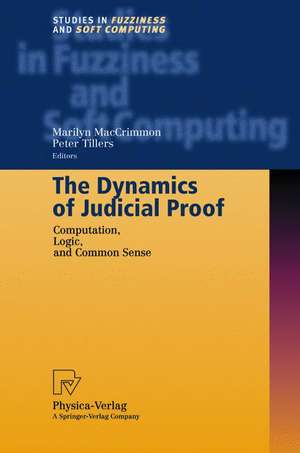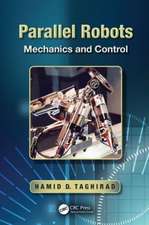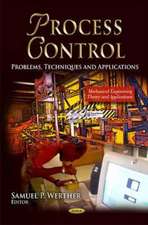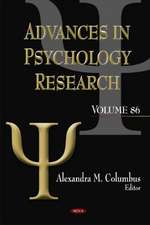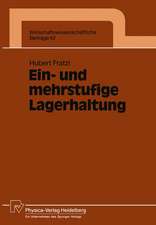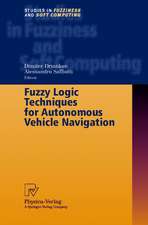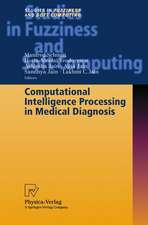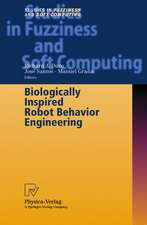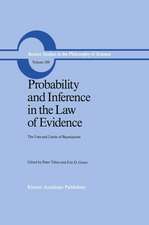The Dynamics of Judicial Proof: Computation, Logic, and Common Sense: Studies in Fuzziness and Soft Computing, cartea 94
Editat de Marilyn MacCrimmon, Peter Tillersen Limba Engleză Hardback – 11 mar 2002
| Toate formatele și edițiile | Preț | Express |
|---|---|---|
| Paperback (1) | 1227.21 lei 43-57 zile | |
| Physica-Verlag HD – 4 aug 2012 | 1227.21 lei 43-57 zile | |
| Hardback (1) | 1233.20 lei 43-57 zile | |
| Physica-Verlag HD – 11 mar 2002 | 1233.20 lei 43-57 zile |
Din seria Studies in Fuzziness and Soft Computing
- 20%
 Preț: 999.85 lei
Preț: 999.85 lei - 20%
 Preț: 653.06 lei
Preț: 653.06 lei - 20%
 Preț: 872.96 lei
Preț: 872.96 lei - 20%
 Preț: 930.57 lei
Preț: 930.57 lei - 20%
 Preț: 1051.00 lei
Preț: 1051.00 lei - 20%
 Preț: 992.44 lei
Preț: 992.44 lei - 20%
 Preț: 655.85 lei
Preț: 655.85 lei - 20%
 Preț: 1001.86 lei
Preț: 1001.86 lei - 18%
 Preț: 954.14 lei
Preț: 954.14 lei - 20%
 Preț: 330.10 lei
Preț: 330.10 lei - 20%
 Preț: 333.04 lei
Preț: 333.04 lei - 20%
 Preț: 997.56 lei
Preț: 997.56 lei -
 Preț: 391.61 lei
Preț: 391.61 lei - 20%
 Preț: 647.79 lei
Preț: 647.79 lei - 20%
 Preț: 986.01 lei
Preț: 986.01 lei - 18%
 Preț: 958.56 lei
Preț: 958.56 lei - 20%
 Preț: 996.40 lei
Preț: 996.40 lei - 20%
 Preț: 999.35 lei
Preț: 999.35 lei - 15%
 Preț: 646.43 lei
Preț: 646.43 lei - 20%
 Preț: 651.57 lei
Preț: 651.57 lei - 20%
 Preț: 997.89 lei
Preț: 997.89 lei - 15%
 Preț: 641.03 lei
Preț: 641.03 lei - 20%
 Preț: 1009.74 lei
Preț: 1009.74 lei - 20%
 Preț: 992.62 lei
Preț: 992.62 lei -
 Preț: 388.72 lei
Preț: 388.72 lei - 18%
 Preț: 1223.43 lei
Preț: 1223.43 lei - 20%
 Preț: 651.42 lei
Preț: 651.42 lei - 18%
 Preț: 951.59 lei
Preț: 951.59 lei - 18%
 Preț: 948.61 lei
Preț: 948.61 lei
Preț: 1233.20 lei
Preț vechi: 1503.90 lei
-18% Nou
Puncte Express: 1850
Preț estimativ în valută:
235.97€ • 247.03$ • 195.25£
235.97€ • 247.03$ • 195.25£
Carte tipărită la comandă
Livrare economică 07-21 aprilie
Preluare comenzi: 021 569.72.76
Specificații
ISBN-13: 9783790814590
ISBN-10: 3790814598
Pagini: 520
Ilustrații: XIX, 494 p.
Dimensiuni: 155 x 235 x 33 mm
Greutate: 0.89 kg
Ediția:2002
Editura: Physica-Verlag HD
Colecția Physica
Seria Studies in Fuzziness and Soft Computing
Locul publicării:Heidelberg, Germany
ISBN-10: 3790814598
Pagini: 520
Ilustrații: XIX, 494 p.
Dimensiuni: 155 x 235 x 33 mm
Greutate: 0.89 kg
Ediția:2002
Editura: Physica-Verlag HD
Colecția Physica
Seria Studies in Fuzziness and Soft Computing
Locul publicării:Heidelberg, Germany
Public țintă
ResearchCuprins
Making Sense of the Process of Proof in Litigation.- One: Common Sense Reasoning.- Artificial Intelligence, Mindreading, and Reasoning in Law.- Common Sense, Rationality and the Legal Process.- What Is “Common” about Common Sense? Cautionary Tales for Travelers Crossing Disciplinary Boundaries.- Two: Fuzzy and Rough Logic.- From Computing with Numbers to Computing with Words: From Manipulation of Measurements to Manipulation of Perceptions.- Fuzzy Logic and Its Application to Legal Reasoning — A Comment to Professor Zadeh.- A Primer on Rough Sets: A New Approach to Drawing Conclusions from Data.- Three: The Structure of Factual Inference in Judicial Settings.- Alternative Views of Argument Construction from a Mass of Evidence.- Explaining Relevance.- Theories of Uncertainty: Explaining the Possible Sources of Error in Inferences.- Models of Data Generation vs. Models of Events that Generate Data.- Four: Dynamic Inference and Choice in Dynamic Environments.- Action and Procedure in Reasoning.- Decision Analysis and Law.- Five: Abductive Inference.- Serendipity and Abduction in Proofs, Presumptions and Emerging Laws.- On the Proof Dynamics of Inference to the Best Explanation.- Species of Abductive Reasoning in Fact Investigation in Law.- Abductive Reasoning in Law: Taxonomy and Inference to the Best Explanation.- Six: From Theory to Practice: “Intelligent” Procedures for Drawing Inferences in Static and Dynamic Legal Environments.- Computational Inference for Evidential Reasoning in Support of Judicial Proof.- Logical Argumentation, Abduction and Bayesian Decision Theory: A Bayesian Approach to Logical Arguments and Its Application to Legal Evidential Reasoning.- Structured Deliberation for Dynamic Uncertain Inference.- Seven: Judicial Proof and EconomicRationality.- Saving Desdemona.- Othello Could Not Optimize: Economics, Hearsay, and Less Adversary Systems.- Eight: Causality.- Causality and Responsibility.- Liability for Increased Risk of Harm: A Lawyer’s Response to Professor Shafer.
Caracteristici
Includes supplementary material: sn.pub/extras
